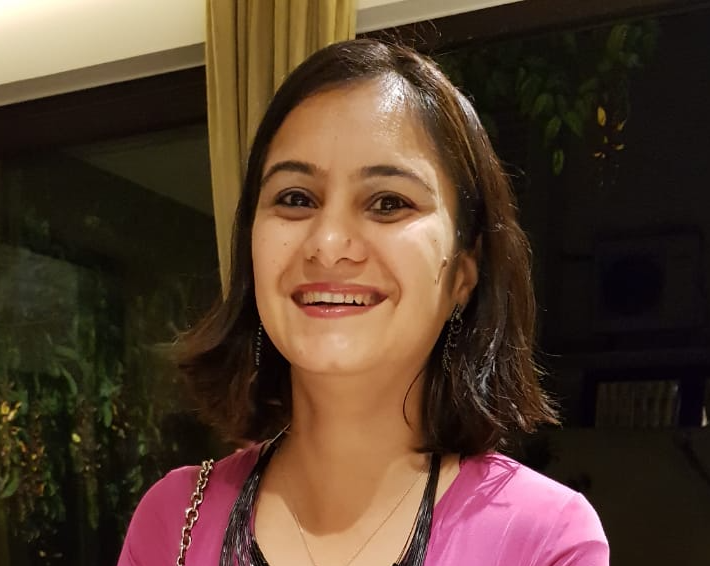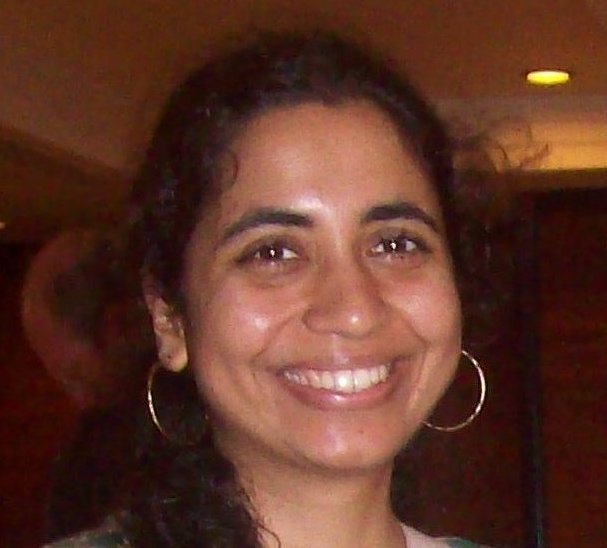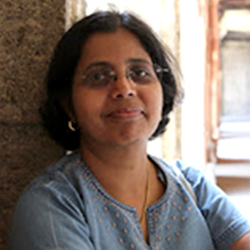© 2024. All rights reserved.
Last update: 2024-08-05 11:33:39 +0530.
The STCS Vigyan Vidushi 2024 programme includes several distinguished lectures and workshops by the following eminent scientists.

Researcher, Google Research India
Broad research interests: AI for social good, machine learning, machine intelligence and perception
Talk title: Using AI to assist in improving maternal and child health outcomes in underserved communities in India
Date and time: 25th July, 4:00 pm - 5:00 pm
The widespread availability of cell phones has enabled non-profits to deliver critical health information to their beneficiaries in a timely manner. This project assists non-profits that employ automated messaging programs to deliver timely preventive care information to beneficiaries (new and expecting mothers) during pregnancy and after delivery. Unfortunately, a key challenge in such information delivery programs is that a significant fraction of beneficiaries drop out of the program. Yet, non-profits often have limited health-worker resources (time) to place crucial service calls for live interaction with beneficiaries to prevent such engagement drops. To assist non-profits in optimizing this limited resource, we developed a Restless Multi-Armed Bandits (RMABs) system. The RMAB system was evaluated in collaboration with an NGO via a real-world service quality improvement study and showed a 30% reduction in engagement drops. This model was eventually deployed by the NGO and has served over 350K women so far. These encouraging results have led to a new collaboration with the Kilkari program, the largest maternal mHealth program in the world. And we hope to see similar improvements in engagement with the use of our AI model.

Professor, STCS, TIFR Mumbai
Broad research interests: graph algorithms and combinatorial optimisation
Talk title: Matchings and Popularity
Date and time: 15th July, 4:00 pm - 5:00 pm
The problem of computing a stable matching in a bipartite graph is an old and well-studied problem. Gale and Shapley showed in 1962 that such a matching always exists and can be efficiently computed. This is a classical result in algorithms with many applications in economics and computer science. Stability is a strong and rather restrictive notion. This talk will be on a relaxation of stability called ‘popularity’ and we will see simple and efficient algorithms for some popular matching problems. No background in algorithms or matching theory will be assumed.

Professor, Department of Computer Science and Engineering, IIT Bombay
Broad research interests: automata theory, logic, formal verification
Talk title: Verification of Concurrent Programs Under Weak Memory
Date and time: 18th July, 4:00 pm - 5:00 pm
This is an overview of recent work on the verification of concurrent programs. Traditionally concurrent programs are interpreted under sequential consistency (SC). Even though SC is very intuitive and easy to use, modern multiprocessors do not employ SC for performance reasons, and instead use so-called ‘weak memory models’. Some of the well known weak memory models in vogue among modern multiprocessor architectures are Intel x-86, IBM POWER and ARM. The use of weak memory is also prevalent in the C11 model, leading to the release acquire fragment of C11. In this talk, I will introduce some of these memory models, as well as recent efforts in the verification of programs under these.
The program also includes a mentoring session and a workshop for the participants. The workshop would be conducted by Prof Vandana Nanal.

Professor, Department of Nuclear and Atomic Physics, TIFR Mumbai
Broad research interests: particle physics, physics beyond the standard model.